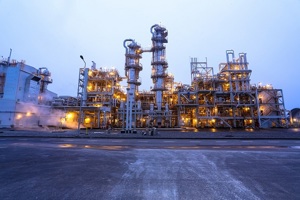Europe boosts Russian diesel buying ahead of ban set to rock market
(Reuters) - European traders are rushing to fill tanks with Russian diesel as the clock runs down on a Feb. 5 European ban expected to tighten supplies, re-draw global shipping routes and increase price volatility.
The ban is likely to create a diesel supply shortfall which Europe hopes to fill with Chinese fuel, some of which will be produced from Russian crude.
China has raised its first batch of 2023 export quotas for refined oil products by nearly half versus a year ago.
China's diesel exports, likely to make up most of the quotas, could reach 400,000-600,000 bpd in January-June, said Mark Williams, research director of short-term oils at consultancy Wood Mackenzie.
"But without Chinese exports pushing swing barrels westward, Europe is unlikely to replace the 0.5 MMbpd loss in Russian diesel exports come the embargo," analysts at Energy Aspects said.
IMPORT RUSH
European diesel imports from Russia stand at 770,000 barrels per day (bpd) so far this month, the highest since March last year, according to energy analytics firm Vortexa.
"European buyers are rushing in to import as much as they can ahead of the ban," said Rohit Rathod, senior oil market analyst at Vortexa.
Russia for years has been the main diesel supplier for Europe, where refineries do not produce enough to meet domestic demand from its large diesel car fleet.
Even as governments and companies sought to sever economic ties with Russia after it invaded Ukraine, Europe last year relied on Russia for nearly half of its imports of diesel, known as middle distillates, according to Refinitiv data.
An EU ban on Russian crude imports which took effect in December will be broadened to include refined fuels from Feb. 5.
It is expected to abruptly change trade flows and will come at a cost.
WoodMac expects diesel margins to crude to average $38/bbl in January-June, more than double the 2018-22 six-month average when compared with Refinitiv Eikon data.
"The high price of diesel will be maintained due to complex logistics and shipping costs. That complexity, which is consequently reducing market liquidity, is likely to keep refining margins on diesel up in the same way as we have seen in 2022," said Rob Turner, sector leader for Energy and Resources at PwC UK.
Europe can no longer rely on blending Russian middle distillates, on upgrading and desulphurising off-spec Russian grades, or on using diesel-rich Urals crude in the refining system as it did pre-conflict, Turner noted.
Traders have rushed to stock diesel ahead of the ban, with regional inventories rising to their highest since Oct. 2021 in the week to Jan. 12, data from Dutch consultancy Insights Global showed.
Stocks are expected to drop after the ban kicks in, Energy Aspects said.
GLOBAL REROUTING
Some of the world's largest tankers with a capacity of 2 MM barrels of oil, have been chartered in recent months to import diesel into Europe from Asia and the Middle East.
However, shipping fuel from Russia into northwest Europe typically takes a week while cargoes from the East take up to 8 weeks on average, leading to higher freight costs.
Demand for refined product tankers is set to rise by 7.2% in 2023 compared with the third quarter of 2022 due to the longer shipping routes, according to Matt Wright, senior freight analyst at Kpler.
Longer voyages will increase the demand for vessels for diesel delivery.
"We're in for a bumpy ride for 12 weeks as global trade works its way out," said WoodMac's head of oils research Alan Gelder. "It's going to be much more volatile".
(Reporting by Ron Bousso, Rowena Edwards and Ahmad Ghaddar in London)







Comments